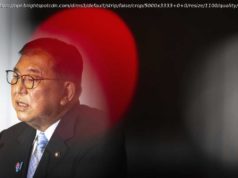Mark Zuckerberg is still just 33, in the same job he’s always had, but he now has to occupy a new role — not just a tech CEO, but a world leader.
The offices of the old Facebook were sprinkled with signs that read, «Move fast and break things.» That was long before the spread of fake news on the platform, before revelations that Russians manipulated it to sow discord in America, before evidence that it may have contributed to genocide in Myanmar, and before a data scandal that left users wondering if they could trust the platform.
The signs are long gone. They’re reminiscent of a tech era now behind us.
I could feel the shift during my last visit to Facebook. I’ve been inside Facebook’s offices many times, but going there to interview CEO Mark Zuckerberg in the immediate wake of the Cambridge Analytica scandal, with the company in crisis, felt different. The campus, in Menlo Park, has doubled in size since my visits years ago. It’s still decorated with bright graffiti and signage, but the feel of the place was somber. There’s a lot of work to do.
It’s a feeling pervasive in tech right now: An era of innovation at a turning point, with the innovators facing the implications of what they created.
As he prepares to testify before Congress, Zuckerberg has to deal with that new reality. He’s not just a tech CEO, but a world leader, overseeing a nation of two billion people that he created. He has to reckon with the serious impact the company has on democracy and the manipulation of user data and trust for political purposes, not to mention a business model under fire.
And until now, Zuckerberg has been protected by his own filter bubble of sorts. He’s a staple behind the scenes at Facebook and a respected leader in closed door meetings there, but his public appearances are rare, often done in a studio set up inside Facebook where he can address his users in a comfortable environment and with help from a script. He may be 33, a billionaire many times over and unquantifiably powerful, but he is still relatively young and cloistered — he has, after all, only ever had one job, and he started in it when he was 19.
Zuckerberg doesn’t like doing TV interviews. He told me that weeks ago as we sat down in the ice-cold conference room code named «the Aquarium» where he holds meetings. Known for sweating at inopportune times, he wanted to talk in a place where he was comfortable.
«There’s an element of accountability where I should be out there doing more interviews as uncomfortable as it is for me to do a TV interview,» he admitted to me. «For what we’re doing I should be out there and being asked hard questions by journalists,» he said, acknowledging that his leadership must extend behind the closed doors of Facebook’s Menlo Park campus.
Now he’ll have another chance to be asked hard questions — not by journalists, but by lawmakers who will likely challenge the company’s underlying business model, its inability to protect user data, and the weaponization of the platform for political gain. Like the CEOs of banks, automakers and tobacco companies before him — as the CEO of a major, world-changing company — Zuckerberg will answer to Congress. And temperature control will be out of his hands.
This is his moment, one that could have a significant impact on him and his company, and it will not come easily to him.
A source inside Facebook says Zuckerberg’s game plan is to convince lawmakers that the company is taking data privacy issues seriously and that it will be more transparent from now on. That game plan is partly why the company has in the last few weeks released an onslaught of updates regarding third party access to the platform, transparency around user data, and changes to make political advertising on Facebook more transparent.
When pressed on how the CEO, who despite growing one of the world’s most influential company hasn’t been outwards facing, will deal with the public format, the source said: «There’s a certain degree of theater, but I think we’re really focused on substance,» adding «this is a leadership moment.»
But as Zuckerberg steps outside his comfort zone, at least some of the focus will be on the style with which he talks about that substance.
I remember the last time I saw Zuckerberg in public at a similarly defining moment. It was 2012, just after Facebook’s IPO had made him the CEO of a public company, and he was about to take the stage at the TechCrunch Disrupt conference.
Some people forget now that when Facebook first went public, the stock plummeted. Investors were angry, and there was real skepticism about the company and its value. Sitting in the front row, I caught a glimpse of Zuckerberg moments before he stepped on stage. He was breathing deeply, lifting his shoulders like he was pumping himself up for a ball game. In that moment, he wasn’t Mark Zuckerberg, 28-year old billionaire of the hottest social network out there and subject of a major Hollywood movie. He seemed, instead, like a nervous guy trying to will himself into this new role.
«I started this when I was so young and inexperienced,» Zuckerberg told me during our interview. «I made technical errors and business errors. I hired the wrong people. I trusted the wrong people. I’ve probably launched more products that have failed than most people will in their lifetime.»
Zuckerberg told me he was optimistic. He’ll tell Congress the company was too idealistic. Idealism and optimism are good ingredients for a pitch deck, but when your platform has power to shape the world, they are not enough.
As users question whether Facebook will protect democracy, or harm it, whether it will connect the world, or drive us further apart, they’ll be looking at the CEO. He has long been standing in the shadows behind the algorithms, but they’ll be watching to see whether he will grow into his current, more public role, whether he demonstrates that he really understands the gravity of the consequences his platform has had.






